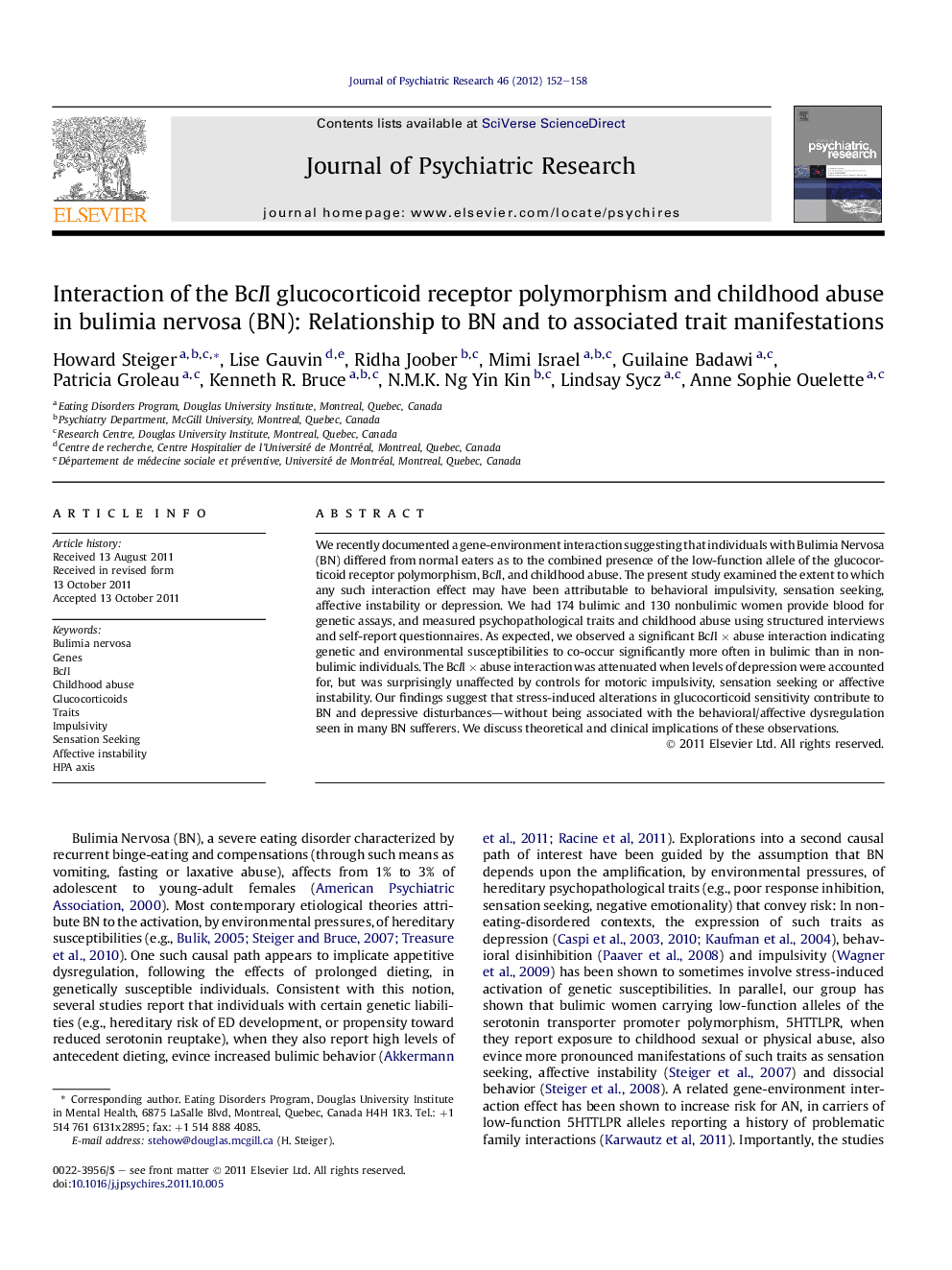| Article ID | Journal | Published Year | Pages | File Type |
|---|---|---|---|---|
| 327715 | Journal of Psychiatric Research | 2012 | 7 Pages |
We recently documented a gene-environment interaction suggesting that individuals with Bulimia Nervosa (BN) differed from normal eaters as to the combined presence of the low-function allele of the glucocorticoid receptor polymorphism, BcII, and childhood abuse. The present study examined the extent to which any such interaction effect may have been attributable to behavioral impulsivity, sensation seeking, affective instability or depression. We had 174 bulimic and 130 nonbulimic women provide blood for genetic assays, and measured psychopathological traits and childhood abuse using structured interviews and self-report questionnaires. As expected, we observed a significant BcII × abuse interaction indicating genetic and environmental susceptibilities to co-occur significantly more often in bulimic than in nonbulimic individuals. The BcII × abuse interaction was attenuated when levels of depression were accounted for, but was surprisingly unaffected by controls for motoric impulsivity, sensation seeking or affective instability. Our findings suggest that stress-induced alterations in glucocorticoid sensitivity contribute to BN and depressive disturbances—without being associated with the behavioral/affective dysregulation seen in many BN sufferers. We discuss theoretical and clinical implications of these observations.
